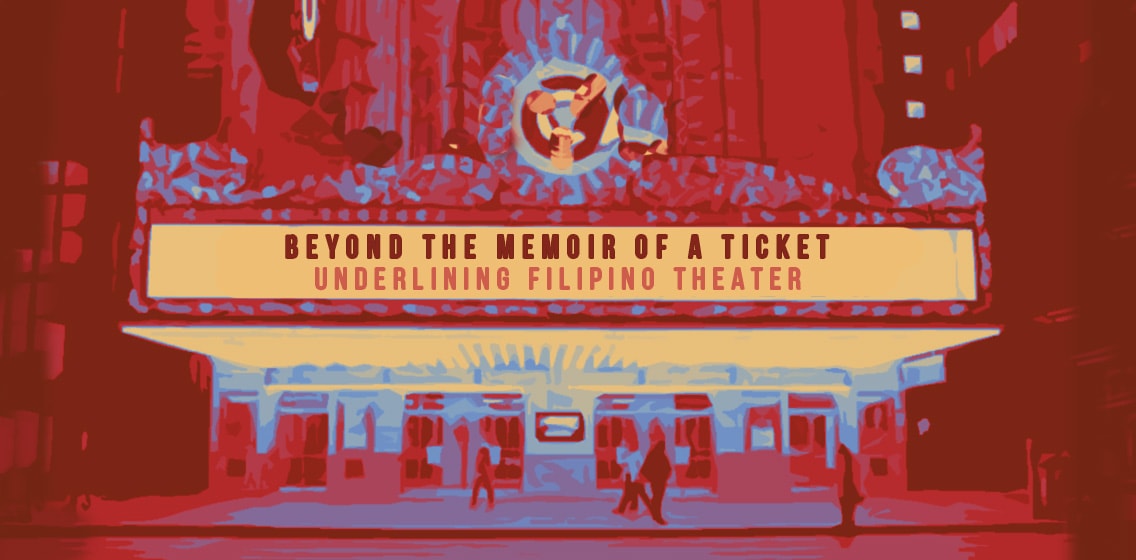The Normal Heart: The fight of the decade
Photo by Christian Ralf Dugan
With a raging scheme and disturbing true story about the revelation of the Human Immunodeficiency Virus (HIV), The Normal Heart brings us back to the turbulent decade of 1980s with Bart Guingona’s brilliant adaptation and direction of Lary Kramer’s original work. Held at the Philippine Educational Theater Association – PHINMA Theater, this three-day run stage play brought by The Necessary Theater passionately breathes life into characters’ powerful words, driving its spectators on a voyage of affection and revolution, and the cringing presence of dread and death.
Substantial cast
The story starts in a New York City hospital where Dr. Emma Brookner (played by Roselyn Perez) is working on peculiar cases of a disease that continuously and vastly kill homosexuals, becoming the first doctor to discover the harrowing condition of the unknown HIV then. In stark contrast to the discrimination against gay men at the time, Perez was able to uphold Emma’s character with a right balance of professionalism and care, proving that she’s not only a follower of science and medicine, but also of the laws of humanity.
The story continues as Ned Weeks (Bart Guingona), a writer of TIME, meets Felix Turner (Topper Fabregas), a fashion reporter from The New York Times, leading to a powerful clash of their lives and revelation of their pasts that is significant to the entire play. Felix is Ned’s sweet, charming, and clingy acquaintance—a gay man with the willpower to disseminate information about the detrimental disease, convincingly portrayed by Guingona—who eventually becomes Ned’s lover (as the two of them defined). Guingona and Fabregas both superbly rowed the flow of the play’s message through intellectual, witty arguments and sexually awkward comical conversations.
After being distracted and bothered by the unexplainable increase of death cases brought by the unknown virus, Ned eventually encounters Bruce Niles (TJ Trinidad), Mickey Marcus (Nor Domingo), and Tommy Beatwright (Red Concepcion) and together they form a gay organization that aims to spread awareness about the detrimental and contagious illness. Bruce, an ex-soldier and closet gay, stands out in his depiction as Trinidad shows the character’s heart-warming sympathy, timidity, and pragmatic point of view. Mickey and Tommy also transform in the latter part of the play, revealing their weak and dramatic emotions in the face of trials, a far cry from their characters’ entrance as elated, relax, and amusing.
In the beginning, the characters’ relationship with each other remains solid and intact but as the story progresses, they too slowly collapse. Desperation to solve their issues gives them a serious and precise understanding of their roles in the fatal epidemic, and it all takes place as the camaraderie that once united them begins to crumble—an all raw commonality in the lives of HIV victims and supporters around the world.
Deeper perspective
Instead of underlining the characters themselves, the show emphasizes the cast’s realistic and lively words. With the simplicity and placidity of its set, they give deeper aspect to every word, statement, rants, and cuss that helps the audience to revive the glorious impact from the first scene up to the end of the show.
Different point of views connect each character to highlight the deeper context promoted in the show—just like in the depiction of love, which is not the usual romanticized love story but a realistic interpretation of homosexuals’ intimacy. The legendary stage play disclosed the lifelike connection of love and fear—that everyone’s horror is to lose the ones they love and fight without them.
The revolutionary approach of the production becomes decisive, especially when Ned and his colleagues established their gay organization. Through a mixture of political framework, Guingona’s adaptation relentlessly conveys the power of a burning passion to reveal and disseminate the truth that might be the key for a change. Despite its international context, The Normal Heart depicted its relevance in the lives of every Filipino, wherein countless are seeking for a reform in the LGBT community’s civil rights.
Beyond the propagation of awareness of discrimination, persecution, embarrassment, and health throughout the three-hour ravage of emotions, the show still humbly reveals that with the change they are trying to raise, there is a possibility that anyone could neglect it. It’s been a brutal certainty that everyone can know and understand the homosexuals’ situations, but not all can give their empathy or whole-heartedly accept their conditions.
***
Through the great arrangement of all its aspect, this play brings its audiences to the helm of emotional sympathy and hilarious realism; showing the battle between science and humanity and fear over death. The Normal Heart exposes the harsh truths that will unravel your innocence about HIV—and it can either haunt us or give tranquility in an unpredictable future.





